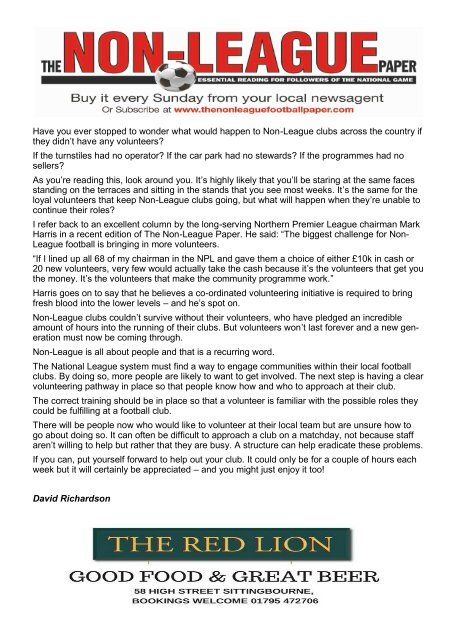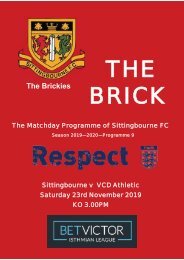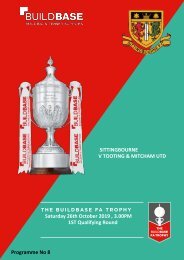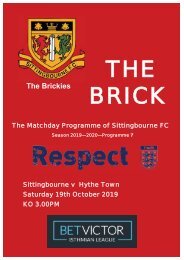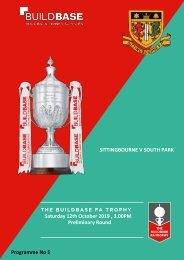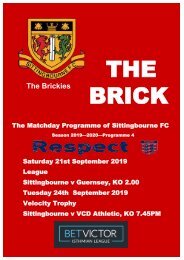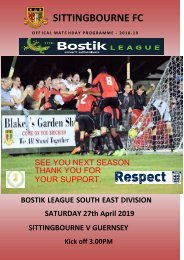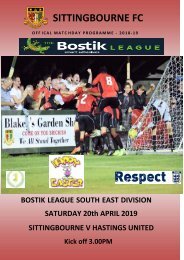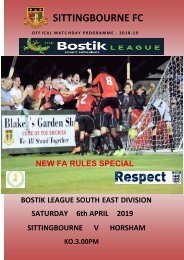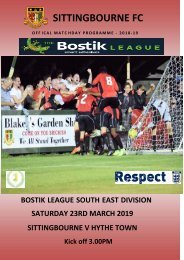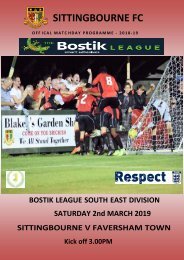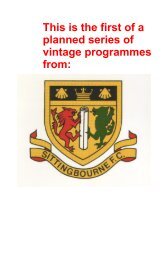You also want an ePaper? Increase the reach of your titles
YUMPU automatically turns print PDFs into web optimized ePapers that Google loves.
Have you ever stopped to wonder what would happen to Non-League clubs across the country if<br />
they didn’t have any volunteers?<br />
If the turnstiles had no operator? If the car park had no stewards? If the programmes had no<br />
sellers?<br />
As you’re reading this, look around you. It’s highly likely that you’ll be staring at the same faces<br />
standing on the terraces and sitting in the stands that you see most weeks. It’s the same for the<br />
loyal volunteers that keep Non-League clubs going, but what will happen when they’re unable to<br />
continue their roles?<br />
I refer back to an excellent column by the long-serving Northern Premier League chairman Mark<br />
Harris in a recent edition of The Non-League Paper. He said: “The biggest challenge for Non-<br />
League football is bringing in more volunteers.<br />
“If I lined up all 68 of my chairman in the NPL and gave them a choice of either £10k in cash or<br />
20 new volunteers, very few would actually take the cash because it’s the volunteers that get you<br />
the money. It’s the volunteers that make the community programme work.”<br />
Harris goes on to say that he believes a co-ordinated volunteering initiative is required to bring<br />
fresh blood into the lower levels – and he’s spot on.<br />
Non-League clubs couldn’t survive without their volunteers, who have pledged an incredible<br />
amount of hours into the running of their clubs. But volunteers won’t last forever and a new generation<br />
must now be coming through.<br />
Non-League is all about people and that is a recurring word.<br />
The National League system must find a way to engage communities within their local football<br />
clubs. By doing so, more people are likely to want to get involved. The next step is having a clear<br />
volunteering pathway in place so that people know how and who to approach at their club.<br />
The correct training should be in place so that a volunteer is familiar with the possible roles they<br />
could be fulfilling at a football club.<br />
There will be people now who would like to volunteer at their local team but are unsure how to<br />
go about doing so. It can often be difficult to approach a club on a matchday, not because staff<br />
aren’t willing to help but rather that they are busy. A structure can help eradicate these problems.<br />
If you can, put yourself forward to help out your club. It could only be for a couple of hours each<br />
week but it will certainly be appreciated – and you might just enjoy it too!<br />
David Richardson


